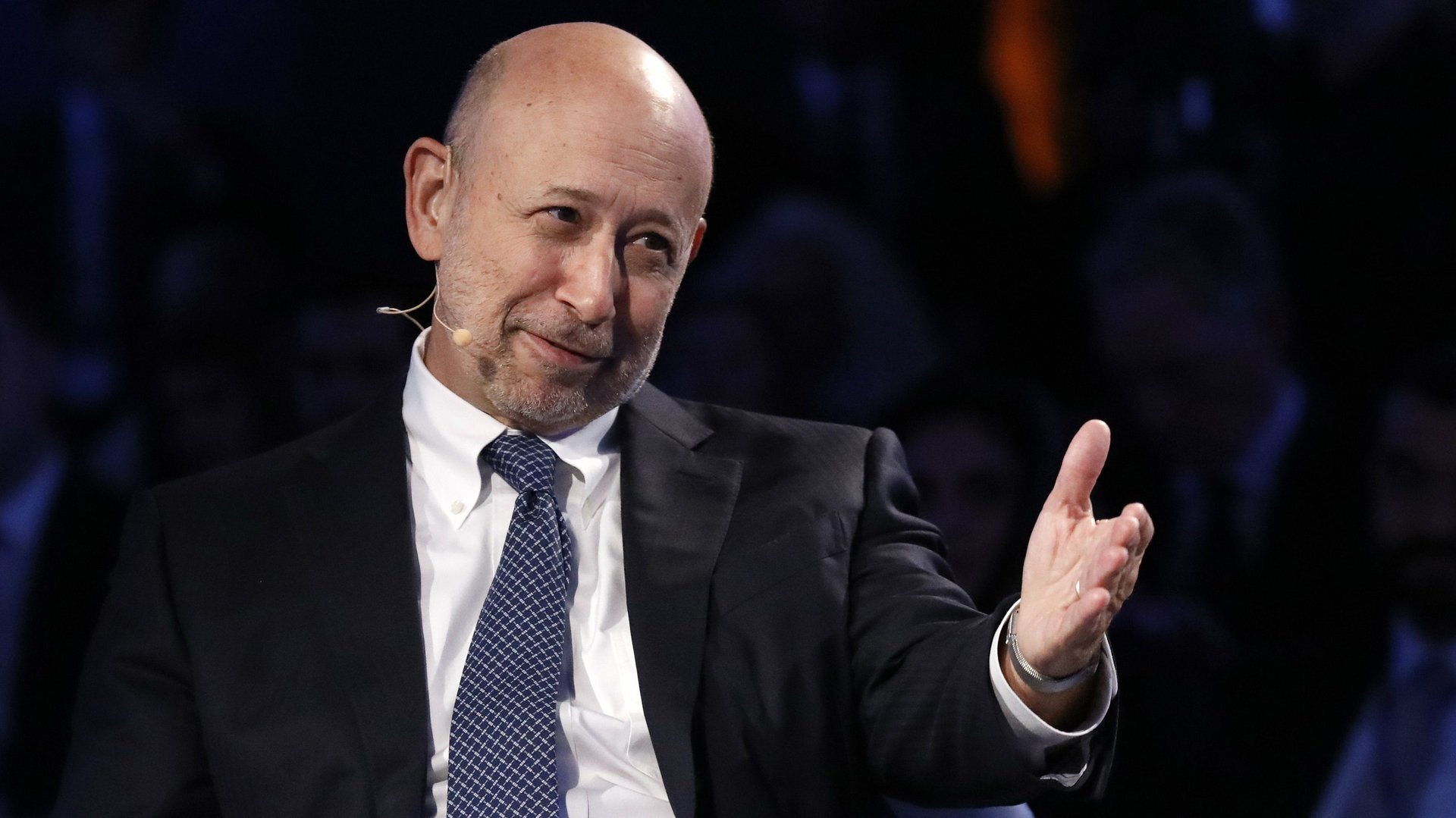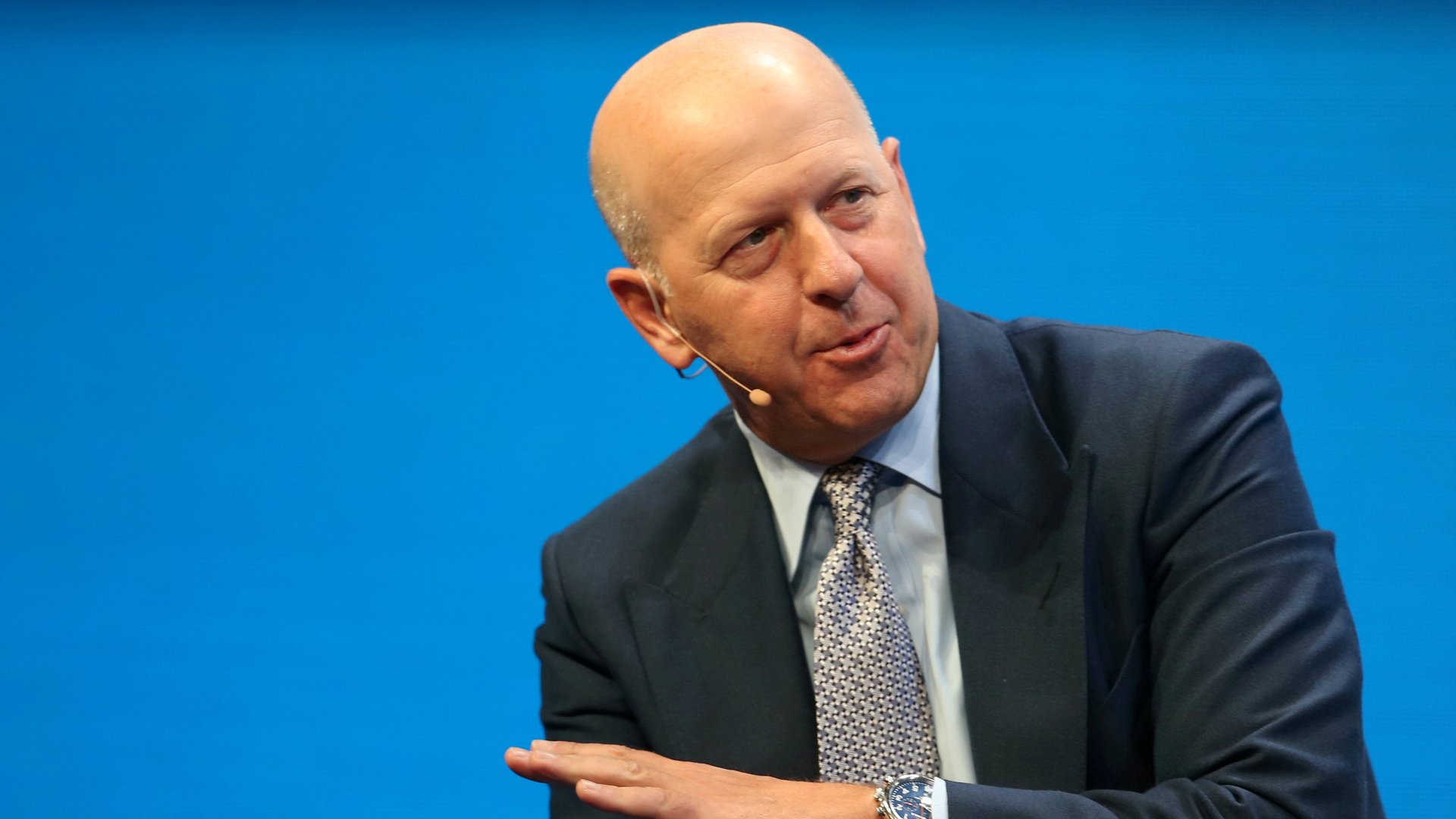It’s official: Lloyd Blankfein is leaving Goldman Sachs
Goldman Sachs has officially named CEO Lloyd Blankfein’s successor: President and heir apparent David Solomon will take over the investment bank’s top job in October. While Solomon’s promotion was signaled months ago, Blankfein’s retirement means there will be one fewer bank boss around who was at the helm of a large US lender during the financial crisis.


Goldman Sachs has officially named CEO Lloyd Blankfein’s successor: President and heir apparent David Solomon will take over the investment bank’s top job in October. While Solomon’s promotion was signaled months ago, Blankfein’s retirement means there will be one fewer bank boss around who was at the helm of a large US lender during the financial crisis.
When Blankfein, 63, steps down after 12 years as CEO, JPMorgan’s Jamie Dimon will be the sole-remaining banking boss who was in charge when Wall Street was engulfed by a severe credit crisis. Investment banks as they were then known went extinct, either through collapse (Lehman Brothers), acquisition by more traditional banks (Bear Stearns and Merrill Lynch), or by converting into bank holding companies during the depths of the crisis (Goldman and Morgan Stanley).
By becoming a bank holding company, Goldman got greater access to the Federal Reserve’s safety net, which came with much more scrutiny and regulation from the Fed’s watchdogs. It marked the start of a safer but less profitable era for formerly high-flying investment banks.
Solomon, 56, will take over a much different company than the one Blankfein inherited in 2006. While he surely still hobnobs with captains of industry, these days Blankfein, who started out as a commodities trader, also makes personal calls to retail borrowers who have taken out loans of just a few thousand dollars. As trading profits have flagged in a much more regulated financial world, Goldman made use of its banking license to dive into the relatively pedestrian business of lending to consumers and businesses, as well as taking deposits. The bank has positioned its personal loans as a solution for overextended Americans with maxed-out credit cards, but, at the same time, Goldman is reportedly working on its own credit card (paywall) in partnership with Apple.
Goldman needed a shakeup. The bank had been valued higher (paywall) by stock investors than arch-rival Morgan Stanley, which shored up profits after the crisis by beefing up in wealth management. But Goldman, traditionally seen as a trading powerhouse, was slower to pivot, and now the banks’ market capitalizations are about the same.
That said, Goldman’s shares have comfortably outperformed the broader investment-banking sector during Blankfein’s tenure. Solomon’s succession was also announced on a day when the bank reported bumper second-quarter results (pdf), generating the most revenue in that quarter in nine years.
“Our firm has demonstrated great resiliency and strength over the last 12 years,” Blankfein said in a statement. Indeed, since he became CEO, Goldman has generated a cumulative $92 billion in net profit.
Although it came early in his time at the top, Blankfein’s legacy will likely be defined by the bank’s role during the financial crisis. It’s worth noting that he and Dimon, the only other CEO of a big Wall Street bank in charge before the crisis (he took over JPMorgan about six months before Blankfein), headed institutions that were considered to have made sound decisions before the meltdown took place.

But while JPMorgan was still seen as solid, then-Federal Reserve chairman Ben Bernanke worried (pdf) that even Goldman, the strongest of the pure-play investment banks, was at risk of failure. Even though Blankfein’s firm had protected itself, its investment banking model was crushed by the systemic panic. Reverence for the sort of financial engineering in which Goldman excelled also disappeared.
As for Solomon, a Goldman partner since 1999, the investment banker has been a firm backer of the company’s drive into consumer finance, according to the New York Times. The bald, former Bear Stearns banker looks conspicuously like his current boss, who looks conspicuously like a lot of other Wall Street chief executives, who are all men. Improving gender parity is reportedly one of his goals.